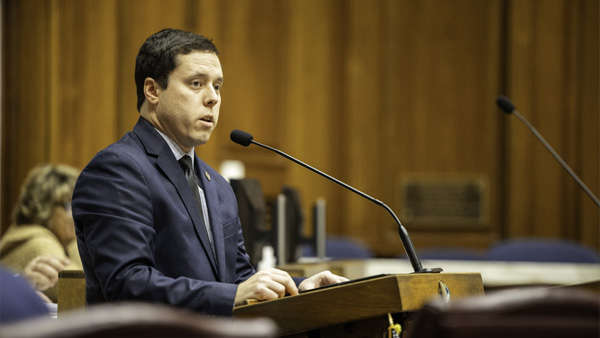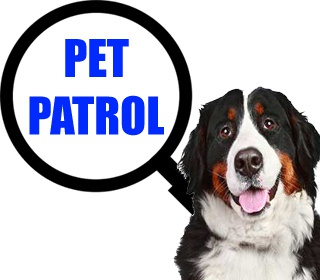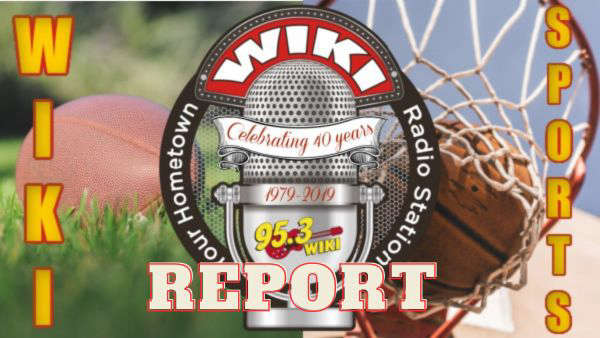Founded in 1982 by an act of the Kentucky General Assembly

FRANKFORT, Ky. (March 28, 2023) — Gov. Andy Beshear and the Kentucky Commission on Deaf and Hard of Hearing (KCDHH) are encouraging Kentuckians to learn more about the deaf community during National Deaf History Month in April. KCDHH uses this occasion to raise awareness of hearing loss and remind those with a hearing loss that there is a multitude of assistance available through KCDHH and other organizations.
“During the last few years, Kentuckians have had the opportunity to see firsthand how valuable the commission’s services are to the people of the commonwealth,” said Gov. Beshear. “By including interpreters in all of our media briefings, citizens have a heightened awareness of the importance of ensuring the 700,000 Kentuckians who are deaf or hard of hearing have an unparalleled level of communication access so that all our people are informed, particularly during times of emergency.”
Founded in 1982 by an act of the Kentucky General Assembly, the advisory agency to the governor and legislature focuses on policies and programs for deaf and hard of hearing Kentuckians.
“People can experience hearing loss at any age for a variety of reasons,” said KCDHH Executive Director Virginia L. Moore. “Hearing loss can be sudden or gradual and can be caused by noise, disease, accident, heredity or aging. Many citizens are not aware of the multitude of state and national resources that are available to them through the Kentucky Commission on the Deaf and Hard of Hearing. KCDHH has a resource library that can be accessed in person or through the mail.”
KCDHH continues to put Kentuckians in touch with appropriate resources and services to help minimize the negative impact hearing loss may have on their lives. Books and videos on topics ranging from coping with a hearing loss to assistive devices, legal rights, and parenting a child with a hearing loss are available through the KCDHH library.
In addition, KCDHH distributes, at no cost, specialized telephone equipment to any Kentucky resident who has a hearing loss or speech impairment that affects his ability to communicate effectively using a regular telephone. The agency provides communication visor cards and fact sheets targeting hearing loss and prevention, as well as information, referral, and advocacy services.
For more information, contact Virginia Moore, executive director at 502-573-2604 or virginia.moore@ky.gov or visit the KCDHH website at https://www.kcdhh.ky.gov/.
KCDHH History
The commission has grown from 11 members in 1982 to the 14 current members, each representing a broad cross-section of the deaf and hard of hearing community. In 1992, the legislature changed the agency name from the Kentucky Commission on the Deaf and Hearing Impaired to the more appropriate Commission on the Deaf and Hard of Hearing. In its 41 years, the commission has had four executive directors: William B. Rogers, Dr. Bobbie Beth Scoggins, Liz Hill and Moore.
Since its inception, the commission has been instrumental in several efforts to level the playing field for the deaf and hard of hearing community. In 1987, the state’s first interpreter training program began at Eastern Kentucky University. In 1990, the commission lobbied successfully for the Public Service Commission to provide a communications relay service for the deaf and hard of hearing. The legislature passed a bill in 1992 that would require American Sign Language to be recognized and taught for foreign language credit in Kentucky’s public schools, colleges and universities.
In 2017, KCDHH was instrumental in the passing of Senate Bill 189, which allows deaf and hard of hearing persons to indicate voluntarily their hearing status in the Kentucky vehicle registration system, allowing law enforcement officers to see the status during traffic stops. From the start of the COVID-19 pandemic, KCDHH interpreters worked with Gov. Beshear during media briefings, providing communication access to the deaf and hard of hearing for the first time in 25 years.
The agency’s most popular program, the Telecommunications Access Program (TAP), began in 1995 and was the 24th such program nationwide. For the first time in Kentucky’s history, the state offered free specialized equipment, like captioned telephones, to the state’s deaf, hard of hearing, and speech-impaired population. As wireless devices, such as smartphones and tablets, have become more a part of the technological landscape, the application of them as communication devices by the deaf and hard of hearing community became more apparent. In 2011, KCDHH entered a one-year wireless device distribution pilot program, the first of its kind in the nation. The program, vetted through an application process, distributed free wireless devices, with service plans, to deaf and hard of hearing.

 Zimmerman's Bill to Hold Unlicensed Drivers Accountable Moves to Governor's Desk
Zimmerman's Bill to Hold Unlicensed Drivers Accountable Moves to Governor's Desk
 State Rep. Bascom's Bill to Strengthen Immigration Enforcement Moves to Governor
State Rep. Bascom's Bill to Strengthen Immigration Enforcement Moves to Governor
 Ky Attorney General Urges Congress to Protect Kentuckians' Access to Fair and Transparent Drug Pricing
Ky Attorney General Urges Congress to Protect Kentuckians' Access to Fair and Transparent Drug Pricing




